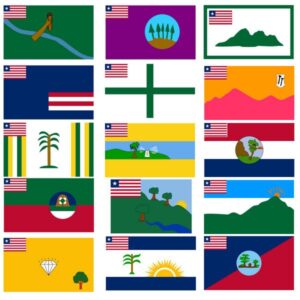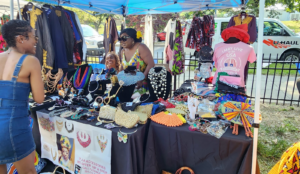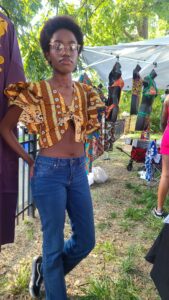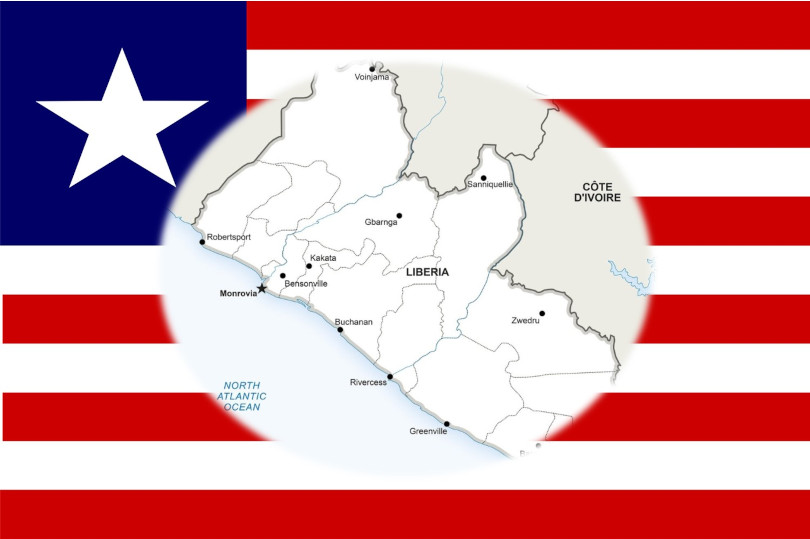Every year near the end of July, hundreds of Liberians from across the country gather at The Embassy of the Republic of Liberia in Northwest Washington DC to celebrate July 26, Liberian Independence Day. On August 24, Liberia celebrates Flag Day. For the first time since COVID hit, I attended the Independence Day Festival with my mother who seIls her jewerly every year. I also spoke with one of the past presidents of the Liberia Community Association of the Washington, DC Metro Area – my Uncle John Lloyd – about the independence day festival and the history of the Liberian community in the DMV.
Origins of Liberian Independence
Liberia was originally established by the American Colonization Society (ACS) to place freed Black Americans. To the newly freed people, the migration was a way to avoid further racial discrimination. To slave owners, and it was a way to avoid any type of rebellion amongst the slaves. The ACS purchased the land with forced negotiations from the natives already living in the land. Jehudi Ashmun, a white American, found the land now known as Liberia. In 1887, Joseph Jenkins Roberts, Liberia’s first Black governor and born free man from Virginia, declared Liberia should be independent.
The Liberian Flag
Liberians take pride in both their country flag and county flag. It is tradition to do the grand March and represent the county you are from in the Liberian Independence Day Festival. Flag Day is an important day in Liberia because it is another celebration of the nation’s Independence. The design of the Liberian flag mirrors the American flag because of the country’s origins. The eleven stripes on the flag represent the eleven people who signed the declaration of Liberia’s independence. The blue square represents Liberia as a nation. The lone star represents the shining light on Liberia. It’s common for Liberians to nickname their home, “the lone star country.”

Liberians in the DMV
Liberians migrated to the United States was the Liberian Civil war. The first war lasted seven years, from 1989 to 1997. The war was caused by government corruption and tensions between multiple ethnic groups. The country became too hostile for people to live and raise their families. The families who were able to move out of the country took the chance. Some of Liberia’s ancestors came from Maryland and Virginia, so there was a sense of familiarity, especially with the town and city names.
Liberian Embassy Established
The day after the festival, I had a phone call interview with my Uncle John. He is a member of the Liberian Community Association and previously was the president of the organization.
Q: How long have you been an active member of the Community?
A: I’ve been a member of the Liberian Community for 30 years.
Q: When did the Liberian Community and Embassy come together?
A: The Liberian Embassy was established by the government in 1949. The Liberia Community Association in DC started in 1986.

Q: When did the festival come together?
A: The festival came together in the mid-to-late 90s after the Civil War. We wanted to create an event that celebrated Liberia after the Civil War ended.
My mother chimed in on her memory of the beginnings of the Liberian Independence Day Festival. My grandfather, her father, was a member of the Embassy.
“Because of the war, a lot of Liberians lost their families. So the Embassy decided to create an event to celebrate Liberia for a healing process for the community. After the first celebration of healing, it became a tradition to come together and unite as one nation. People would come and cook Liberian cuisine, sell clothes, and play live music to remind them of home.”

Q: Why did Liberians migrate to the DMV area?
A: A lot of refugees were placed there, including Philadelphia and New York. After the war, Liberians migrated to the places where their families were settled in. The refugees were placed in the DMV by the Red Cross.
Q: Most of the members of the Liberian Embassy and Community are older. What are your hopes for the younger generation to keep the organization alive? Is it hard to get the youth involved?
A: It’s a dual effort. The community needs to embrace the younger generation’s ideas. You know most of our members are older. The younger generation also needs to show interest in the community. Hopefully your generation will show up and continue our traditions.

Q: What’s your favorite part about the Liberian Independence Day Festival?
A: The sense of national pride. People coming together and celebrating Liberia.
My Experience At The Festival
I went to the festival almost every year when I was child. I remember there being many more people attending, selling, and performing. Covid has changed the way the festival looked. There were a lot less people around, but the sense of National pride was still there, and the area was still packed with people. It was nice to see family and friends that I haven’t seen in months or years, seeing children perform dances, and people proudly wearing the flag on their bodies. When I was younger, I didn’t know much about Liberia besides the fact it was where my family was from. As I have grown older and learned about why my parents immigrated to the DMV and what they had to go through back home, I have become more invested in my heritage and culture.




This is a fantastic piece